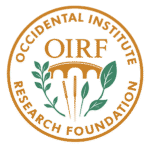Immune System – News from Science
New Insights into Basics, Diseases and Therapy

T cells can go into a state of exhaustion. But there is an important reason for this. Additionally: scientists have found possible causes of severe COVID-19 courses. And: how vitamin D3 can be helpful for allergic asthma. These and much more are the topics of the scientific overview of the immune system.
The great importance of our immune system for the entire organism was once again made clear at Immunology Day in April 2023. There, experts from various specialist disciplines exchanged ideas. Exemplary excerpt: The immune system is significantly shaped in the first weeks and months of life. All influences from the environment have an effect on it. Disturbances during this development have lifelong effects, for example through the development of chronic diseases. And this affects the entire organism, because: The immune system communicates with numerous regulatory systems of our organism, such as the metabolism and the nervous system. Even the heartbeat is influenced by the immune system. The transmission of stimuli during the heartbeat only works properly when macrophages are present. The aging of the heart and healing after a heart attack depend on the performance of the immune system. It is important to have a good natural balance, because too much Immune response can worsen the heart’s pumping capacity. [1]
Using influenza A viruses as an example, a team of researchers from Heidelberg University has succeeded in clarifying the way in which viruses penetrate human cells. They also found out how the immune system fights off viruses with the help of a protein. The viruses dock into the human cell with glycoproteins, which they carry in their lipid membrane. There, they have to open a fusion pore between the membrane of the virus and the host cell in order to release the genome into the host cell. Infected cells then send the signaling molecule interferon to uninfected cells. As a result, an Interferon-induced Transport Membrane-Protein 3 (IFITM3) is produced there to prevent viruses from entering. In this way, the immune system blocks the formation of fusion pores. [2]
A researcher from the Swiss Ecole Polytechnique Fédérale de Lausanne (EPFL) has gained a deep insight into the foundations of our defense mechanisms. They discovered a signaling pathway through which defense reactions are initiated, the cGAS-STING signaling pathway. This consists of DNA sensor molecules. By binding to DNA, they generate immune-stimulating messenger substances. These are used to disseminate information into the cell about foreign DNA found, such as from viruses. As a result, defensive measures are immediately initiated. However, this shot can also backfire and trigger a harmful release of interferon, as in severe COVID-19 infections, resulting in destructive overreactions of the immune system. [3]
In order for the immune system to fight off viruses, a signaling cascade is activated. This requires the enzyme TBK1 (TANK Binding Kinase 1). It is an important building block of the innate immune system. Point mutations in the TBK1 gene can lead to the loss of function of TBK1. Those affected are more susceptible to viral infections. [4]
“After surgery, there can be accompanying infections. As a new study revealed, bacteria from the patient’s gut microbiome are often involved.”
Accompanying infections may occur after surgery. As a new study revealed, bacteria from the patient’s gut microbiome are often involved. For this purpose, almost 4,000 patients who suffered an accompanying infection after major surgical procedures were examined. In almost all cases, intestinal bacteria such as Enterococcus, Escherichia coli and Clostridia were involved. The liver obviously plays a special role in these events. This is where special cells of the immune system reside, which are normally responsible for controlling these bacteria and for the healing process after surgery. It is not yet clear exactly what is driving the escalation. Against this background, it is important to support immunity prophylactically. [5]
Cytotoxic T cells have the task of eliminating infected and abnormal cells. If a strong inflammatory reaction develops, some T cells develop into sprinters that perform their task effectively and in the short term. So that the immune system defense does not break down in chronic infections, some T cells develop into marathon runners. The signaling substance interleukin-33 functions decisively in this. It also ensures that marathon T cells multiply so that endurance running can be won against chronic infections. [6]
So-called extracellular vesicles play an important role in the immune system’s T cells fighting viral infections. These are tiny membrane particles. They are secreted by cells and are used for cell communication. This stimulates the T cells to multiply. In addition, more genes are activated, which are necessary to fight infections. Researchers also observed that after an infection, the number of vesicles in serum decreased, while it increased on T cells in the spleen. This means that the binding of vesicles to cells increases after infection. These vesicles act as a danger signal for T cells. [7]
So that T cells can communicate with each other and trigger immune reactions, certain messenger substances are needed, the so-called cytokines. One of these cytokines is interferon-gamma. This can attach itself to the extracellular matrix of the connective tissue, which lies as a network between the cells. This prevents the messenger substance from spreading throughout the body and leading to critical overreactions. The prerequisite for attachment is four amino acids. If there are disturbances here, or even if they are missing, this has serious and severe consequences for the immune system. [8]
In chronic diseases, T cells can go into a state of exhaustion over time. Apparently, this is what nature wants, because researchers have discovered a gene that contributes to this exhaustion. Obviously, the gene boosts short-term immune responses to drive T cells in acute emergencies when it comes to fighting against a disease. [9]
News about the Causes of Disease-Causing Conflicts with the Immune System
Since COVID-19 has been on our minds, scientists have been researching the reasons why severe courses of the disease occur. In the meantime, they have found possible causes in genetic and epigenetic regulation. In this way, they identified regulators that underlie the malfunction of the innate immune system. Certain already known genetic risk factors also play a role. Their approach was the monocytes, which are overactivated in COVID-19. There, they were able to determine how gene expression is regulated by altered accessibility to chromatin. Furthermore, which transcription factors are involved in the control of monocytes. In addition, they found that a particular genetic variant contributes to a higher viral load. [10]
In premature babies, infections can occur with a rapid fatal outcome. Scientists have now found out why. An immune-stimulating signaling pathway is inhibited in the developing immune system. As a result, the neutrophils do not function as they do in adults. It’s like you’re switched off. This function is obviously a prerequisite for normal development in the uterus. If the children come into the world early, this effect becomes a danger. [11]
A team of researchers from Borstel, Munich and Pittsburgh has found a new activation pathway of immunoproteasomes. These protein complexes not only activate the immune response to viral infections, but can unfortunately also lead to an unwanted activation of the learned immune response. In earlier years, it has already been shown that these protein complexes are involved in the excessive wound healing reaction in pulmonary fibrosis. The current study suggests that the activation of cells of the learned immune system against the patient’s own lung cells contributes to the development and worsening of idiopathic pulmonary fibrosis. [12]
Fumarate is a mitochondrial metabolic product. If fumarate hydratase is disturbed, fumarate accumulates in the mitochondria. Using high-resolution imaging techniques and biochemical experiments, scientists can demonstrate for the first time the connection between the accumulation of the metabolic product and the development of inflammation, cancer and autoimmune diseases. [13]
If the immune system releases the immune messenger substance interleukin-6 within the scope of an infection during pregnancy, this may have an impact on the brain of the unborn child. With the help of a brain organoid – a three-dimensional cell tissue that mimics the cerebral cortex of humans – it can be shown that the release of the messenger substance changes the structure of the cerebrum of the unborn child. That increases the risk of later autism spectrum disorder, among other things. [14]
The fungus Aspergillus fumigatus evades the defenses in the surface cells of the lungs by binding a human protein. In this way, it can implant itself in lung cells without hindrance. A danger for immunocompromised people. In the healthy process, the epithelial cells of the lungs enclose foreign bodies and form a so-called phagosome. This is a compartment within the cell that is enclosed by a membrane. There, processes are set in motion to finally decompose the foreign body. It is precisely these processes that can redirect the fungal spores by binding to the human protein. Through transport to surrounding cells, the fungal invasion spreads. They can change this mechanism not only in the lung cells, but also in immune cells. Important findings to understand the life-threatening invasive aspergillosis in immunocompromised people. [15]
However, fungi are not only pathogens, as is often assumed. Increasingly, fungal species are being identified that are important for the health of the host organism. It is assumed that they regulate the natural balance in the microbiome together with bacteria. In the future, scientists would like to investigate the until now neglected positive significance of fungi. [16]
News about Solutions and Diagnostics
Many older people tend to develop inflammatory events. Technically called inflammageing or inflammation ageing. As a result, age-related diseases are favored. The reason for this is long-term elevated concentrations of certain pro-inflammatory cytokines. A study has shown that this can be counteracted with a combination of regular exercise and a diet rich in omega-3 fatty acids and proteins. [17]
Vitamin D3 can have a positive effect on the cellular inflammatory response in allergic asthma. As a result, the asthma problem improves. These results come from studies at the Friedrich Alexander University in Erlangen-Nürnberg. There, affected preschool children and adults with an intake of the dietary supplement vitamin D3 were examined. In blood cells, the researchers found an increase in the protein Blimp-1, which controls the immune response of T helper cells. They also found fewer allergy-promoting antibodies (IgE). Due to the additional vitamin D3 intake, the immune system reacted anti-inflammatory. For the first time, an effect of the vitamin on long-lived memory-T cells could also be demonstrated. [18]
In order to better predict the function of a gene, a researcher has developed a new instrument for data analysis. This can contribute to formulating hypotheses about genes involved in certain immune diseases in the elderly. Until now such a process normally takes several months at correspondingly high costs. In addition, experiments with animal models can be significantly reduced. [19]
Artificial intelligence will improve diagnostics for cancer patients, as an example of colon cancer shows. Scientists at the University of Mainz have developed an AI-based forecasting model. With the Multi Stain Deep Learning model, microscopic images of different immune cells in the tumor of the colon and its environment can be evaluated more effectively and accurately than before. This [helps] to make better predictions about the effect of cancer therapy and the chance of survival. To train the AI algorithm, they used more than 300,000 microscopic images of around 1,000 people with colon cancer. The accuracy is around 80 percent. [20]
Conclusion and Outlook
The increasingly refined research results on the complex mechanisms make clear the central importance of the immune system in the network of our body’s regulatory systems. And they create the basis for better understanding and development of causes and solutions to diseases. Modern processes, not least artificial intelligence, open up completely new perspectives.
Keywords: Diagnostics, Research, Immune Response, Immune System, Artificial Intelligence, T Cells

An Exclusive Translated Article for P2P Supporters
From the Monthly Publications of P2P
Published January 2024
From an article in CO.med, Volume 29, October 2023
Machine Translation by Lernout & Hauspie, & Promt
Translation & redaction by: Carolyn L. Winsor, P2P Consulting
© Copyright 2023, CO.med, Petersen, Germany
Literature
- Was kann unser Immunsystem leisten? Aktuelle Ergebnisse aus der Immunforschung, Julius-Maximilians-Universität Würzburg, Informationsdienst Wissenschaft (idw), https://idw-online.de/de/news813486
- Das Virus in eine Falle locken, Universität Heidelberg, Informationsdienst Wissenschaft (idw), https://idw-online.de/de/news813195
- Paul-Martini-Preis für neue Behandlungsansätze bei Infektionen, Entzündungs- und Krebserkrankungen, Paul-Martini-Stiftung (PMS), Informationsdienst Wissenschaft (idw), https://idw-online.de/de/news813150
- Immunzellen verfügen über einen Backup-Mechanismus, Rheinische Friedrich-Wilhelms-Universität Bonn, Informationsdienst Wissenschaft (idw), https://idw-online.de/de/news810642
- Angriff aus dem Darm, Julius-Maximilians-Universität Würzburg, Informationsdienst Wissenschaft (idw), https://idw-online.de/de/news811360
- Die Marathonläufer der Immunabwehr, Universität Basel, Informationsdienst Wissenschaft (idw), https://idw-online.de/de/news810310
- T-Zellen: Vesikel verstärken die Immunantwort, Ludwig-Maximilians-Universität München, Informationsdienst Wissenschaft (idw), https://idw-online.de/de/news812526
- Wie sich die Körperabwehr selbst in Schach hält, Max-Delbrück-Centrum für Molekulare Medizin in der Helmholtz-Gemeinschaft, Informationsdienst Wissenschaft (idw), https://idw-online.de/de/news808776
- Damit weisse Blutkörperchen kein Burnout erleiden, Schweizerischer Nationalfonds SNF, Informationsdienst Wissenschaft (idw), https://idw-online.de/de/news808678
- Was führt zu schweren COVID-19-Erkrankungen? Medizinische Hochschule Hannover, Informationsdienst Wissenschaft (idw), https://idw-online.de//de/news809770
- Frühgeborene: Was das Immunsystem anfällig für tödliche Infektionen macht, Ludwig-Maximilians-Universität München, Informationsdienst Wissenschaft (idw), https://idw-online.de/de/news809707
- Idiopathische Lungenfibrose: Wichtiges Puzzleteil bei der Entstehung der Krankheit entdeckt, Forschungszentrum Borstel, Leibniz Lungenzentrum, Informationsdienst Wissenschaft (idw), https://idw-online.de/de/news810824
- Wie ein Stoffwechselprodukt zu Entzündung und Krankheit führen kann, Universität zu Köln, Informationsdienst Wissenschaft (idw), https://idw-online.de/de/news810489
- Veränderte Hirnstruktur: Warum Infektionen in der Schwangerschaft Autismus begünstigen können, Hertie-Institut für klinische Hirnforschung (H114), Informationsdienst Wissenschaft (idw), https://idw-online.de/de/news810466
- Pilzsporen kidnappen Lungenzellen, Leibniz-Institut für Naturstoff-Forschung und Infektionsbiologie – Hans-Knöll-Institut (Leibniz-HKI), Informationsdienst Wissenschaft (idw), https://idw-online.de/de/news810498
- Kieler Tagung: Pilze und ihre Beteiligung am Mikrobiom, Christian-Albrechts-Universität zu Kiel, Informationsdienst Wissenschaft (idw), https://idw-online.de/de/news810143
- Ernährung und Sport können Entzündungsgeschehen bei älteren Menschen positiv beeinflussen, Deutsches Institut für Ernährungsforschung Potsdam-Rehbrücke, Informationsdienst Wissenschaft (idw), https://idw-online.de/de/news809858
- Wie Vitamin D3 bei allergischem Asthma hilft, Friedrich-Alexander-Universität Erlangen-Nürnberg, Informationsdienst Wissenschaft (idw), https://idw-online.de/de/news813029
- Renate und Karl-Heinz Schmidt Preis für naturwissenschaftliche Grundlagenforschung für Lorenzo Bonaguro von der Uni Bonn, Deutsches Stiftungszentrum Stifterverband, Informationsdienst Wissenschaft (idw), https://idw-online.de/de/news810560
- Von Forschenden der Universitätsmedizin Mainz neu entwickeltes KI-Modell verbessert Diagnostik bei Darmkrebs, Universitätsmedizin der Johannes Gutenberg-Universität Mainz, Informationsdienst Wissenschaft (idw), https://idw-online.de/de/news810734
Letzter Zugriff: 25.08.23



